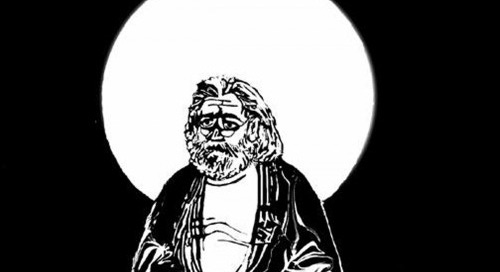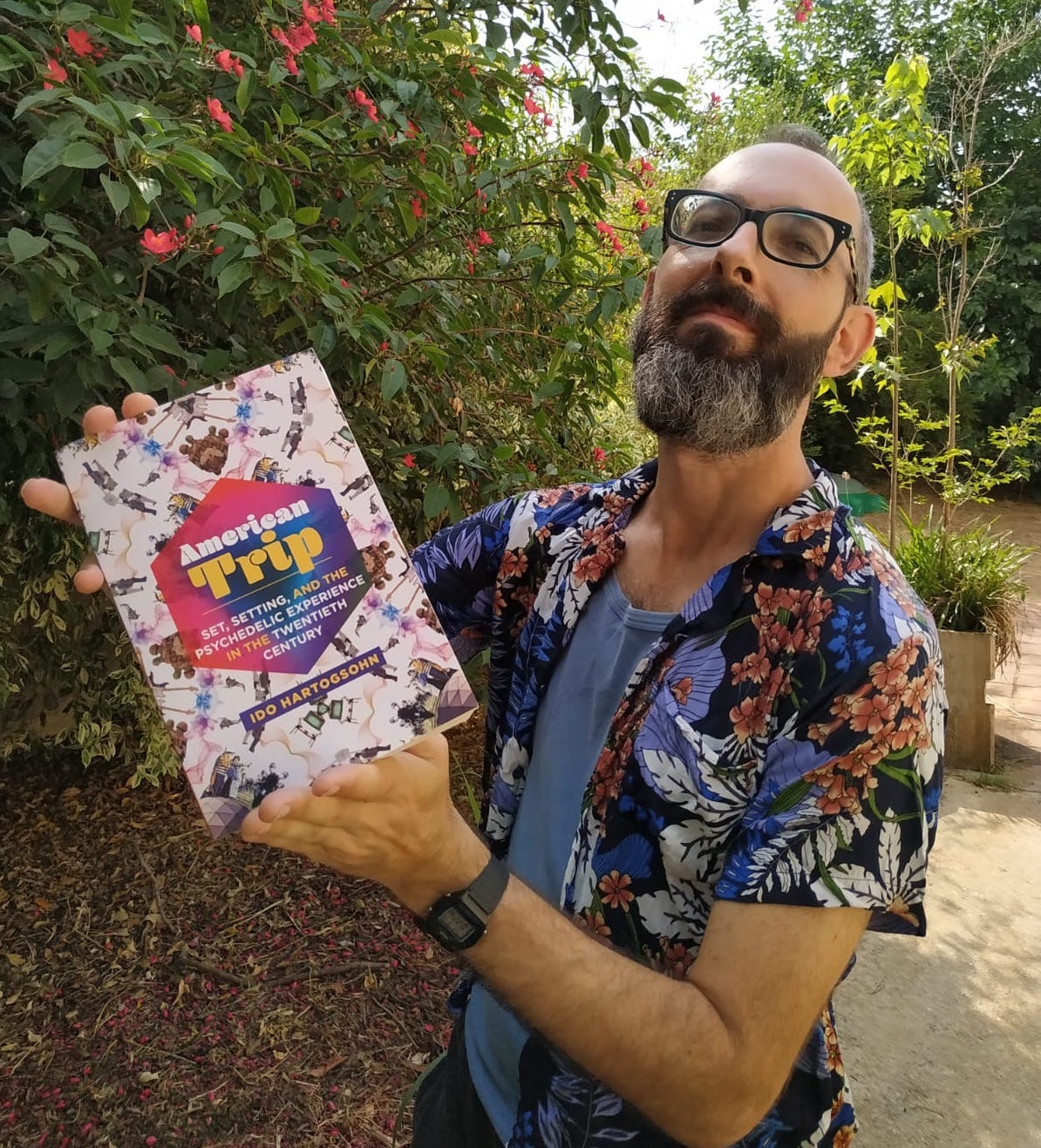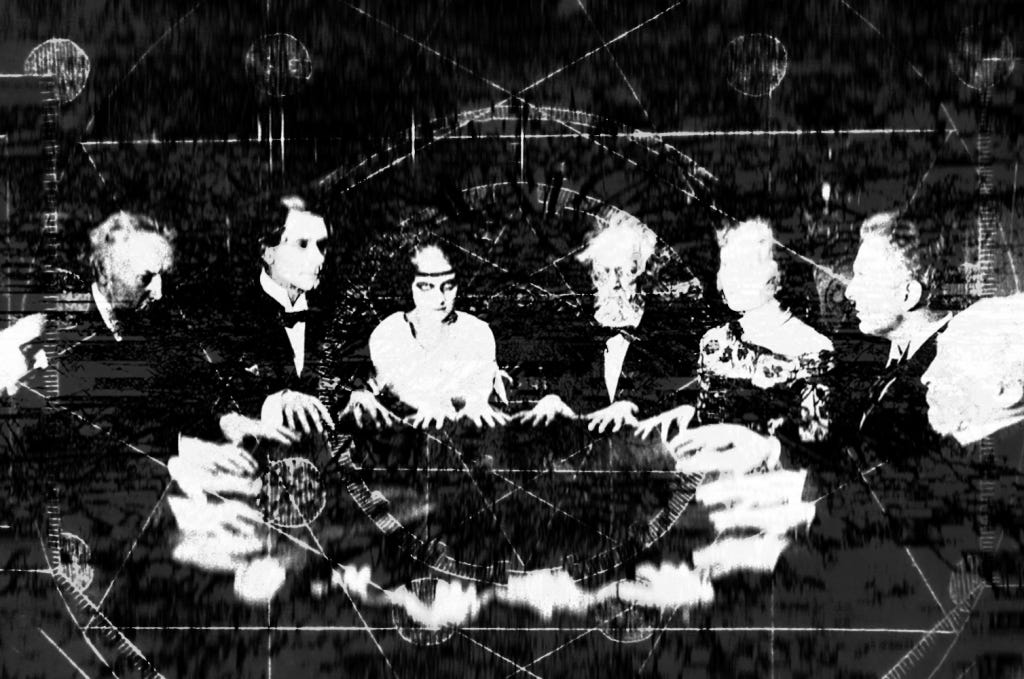As I write, a miasma of anxious, ominous, and yet somehow tedious ambiguity cloaks the land. In the hopes you might want to think about something else, I here offer up two koans from the puzzled sage Jerry Garcia that have stuck with me through the years.
I’ve read different versions of the first saying online, but here’s one I like:
You don't want to be the best at what you do. You want to be the only one who does what you do.
At first glance, this could be plucked from a business self-help book, maybe something like Captain Trips’ Ten Habits of Highly Successfully High People. This entrepreneurial take makes a certain sense: Don’t set out with the aim to out-perform a rival in an established product or service, but seek innovation instead, find that niche or market or desire that has yet to be tapped, and tap it.
This drive for novelty is one of the more fecund and unpredictable features of capitalism, and helps explain its polymorphous and sometimes liberating exuberance. At the very same time, Jerry’s maxim can also be read, from the biz perspective at least, as a call for monopoly domination, which is one of capitalism’ most oppressive and sclerotic features. Funny that.
For all his wealth, Jerry was no suit (and the Dead made a number of atrocious business decisions in their time). His suggestion is really aimed at creative types who are tempted to succeed through mimetic rivalry within a bounded space. In this path, you get ahead by adding a twist or two to a proven formula, either by innovating within a genre, or splicing together some recognizable codes, or selling your novelty according to templates that are anything but. No criticism here—these moves are all important aspects of the creative life, except maybe the pushy self-marketing, though that seems de rigueur these days. But excellence, which is what Jerry is really talking about here, involves the pursuit and practice of something like singularity—something wayward and mutant dredged from your own difference, not so much your own “originality” as your weirdness.
This pursuit of strange singularity is related to the other Jerry saying I like, the one where he compares the Dead to licorice.
Not everybody likes licorice, but the people who like licorice really like licorice.
If you are a weirdo creative, and are unable or unwilling to simply tweak an already existing form, you gotta take a dice-roll on the licorice. You hope that whatever you precipitate in your singular way will still wind up with an audience who likes the way it goes down.
I don’t know what the hell I’ve been doing these decades of writing and reading and riffing and podcasting, but I have mostly been minding the Alan Watts-cum-Garcia injunction to “follow your weird.” Which means I’ve been cooking up some strong licorice. Want some?
Substack is a great platform for writers like me, because I can grow my audience rhizomatically, as it fans out like mycelium from already existing readers, friends, and fans. I’ve got other gigs too of course—I am doing another book with MIT Press, and will be teaching some cool university classes this spring, and keep thinking about podcast possibilities. But with The Burning Shore I am making the dice-roll that my work can route around gatekeepers, and do so sustainably. I want to write about what is meaningful to me, connect with the folks who dig what I do, and have fun doing it— which also means making enough bread to not bum out.
Substack is in an iterative form, and I will be tweaking The Burning Shore over the next few months, changing some things and adding new features into the mix. The big question, of course, is what to put behind the paywall. My latest vision is to make all the primary material freely available, which is more my sentiment anyway. Paying subscribers will then have access to my attention, through comments, conversation, and community-building threads and features, like the forthcoming “Ask Dr. D.” It’s a work in process, but what isn’t?
Events
• On Saturday, November 7, I will be convening the monthly online gathering of the San Francisco Psychedelic Sangha at 6pm PT. The event will combine a talk, a practice, and plenty of time for discussion. Given our election woes, I want to explore how meditation, like psychedelics, can lead us into intimacy with confusion, ambiguity, and the loss of control. Sign up here; any dana for the event should be tossed into the SF Dharma Collective bucket.
• Earlier this year, my friend and colleague Ido Hartogsohn, an Israeli scholar, published his wonderful book American Trip: Set and Setting and the Psychedelic Experience in the Twentieth Century (MIT Press). An online celebration of the book will be held on Tuesday, November 10, starting at 8:30am PT. The first two hours will be devoted to Israeli psychedelia, while I will be participating in the second half of the event, which starts at 10:30am PT, and also includes scholars of psychedelia like Nancy Campbell and Nicholas Langlitz. Ido also hosts the incredible Psychedelic Video Museum and will be curating videos for the event.
Links
• The monastic aspects of 2020 Covid life haven’t bothered me that much, and have been alchemically catalyzing in some ways. But I’m bummed out about the absence of feral outdoor music festivals, where I like to lecture (and dance) whenever I can. So I was very happy when Chiara Baldini and Ivan March, of Portugal’s mighty BOOM festival, invited me to participate in a “podquest” called “Nerd Immunity,” which addressed the conspiracy theories that are dividing a lot of freak communities. I also got to share the virtual stage with Erica Lagalisse, author of the mind-opening book The Occult Roots of Anarchism. We had a fine old time on the tightrope.
• When I attended Rice University a decade ago, I whiled away the boozy hours with a number of unusually bright, funny, and forward-thinking grad students, whose inter-disciplinary interests and great good humor made Houston’s concrete swamp more than tolerable. Now two of them, Seth Morton and Alexander Adkins, carry on the conversation in their podcast Beautiful Losers, which explores the continued relevance of humanities discourse in an unravelling 21st century. I recently joined them for an episode called “Building a Better Self: Demystifying Stoic Anthropotechnics with Erik Davis.” We talked about Peter Sloterdijk, pop Stoicism, systems theory, and the practice of the self in an era of urgent collective needs.
• I also had a wonderful time recently talking with Nathan Thompson for his Escaping Samsara podcast. I’ve known Nathan for a while, and admire the life he has carved out for himself in Asia, teaching yoga, exploring the mystery, and keeping his brain sharp. His podcast asks folks about their personal spiritual and mind-hack journeys, from a nerdy but still transformative angle. For my episode, “The Chaos Path,” we left High Weirdness to the side and delved into some yarns and reflections on my own pathless path over the years.
• For Halloween, Zach Betonte of the Film Jive podcast invited a number of folks, including Zombie expert John Cussans and horror writer Brian Evenson, to contribute macabre bits for an audio analog of the Surrealist practice of the exquisite corpse. I joined in by recording a handful of creepy poems by the California writer Clark Ashton Smith, which make an appearance in both Part 1 and Part 2 of the resulting Sonospheric Corpse. Though I initially feared that posting these in November would seem late to the party, it looks like our horror is only going to continue…
I hope you enjoyed this flicker of The Burning Shore. Please consider a paid subscription if you can, and I promise that bonuses both tangible and cosmic will rebound upon you. The Burning Shore only grows by word of mouth, so pass this along to someone who might dig it. Thanks!







Mmmm, like waves against the bandstand dancers broke. You touch on elements I am exploring within my own writing path. The emergent born from our individual selves that cause ripples within a resonant community. Seeking for and sharing our uniqueness to further echo what first rang true within, but too allow for and to encourage not just the call, but the response as well.. I am really appreciating many of the dialogues that seek to push the crest of the wave out past the horizon. Real dia logos from spaces of authenticity, below the storyline, but including our personal imprint.
Garcia was a channel. While he was surely uncomfortable with accepting any esoteric label that might engender him with unwanted attention, his ability to connect with that ephemeral and ineffable always newly emergent other was at the time, beyond compare. He seemed to be able to step behind the veil and share what he was experiencing, even if simply thru the transrational tones of his guitar.
Peaking through the veil, we can sense the value held within. It may just inspire some dance, or some poetry... but no one who touches the echo of non duality returns the same as before. Can the Tao be coopted by market forces? It likely wouldn't be the true and complete Tao, or at least thats how the saying (sort of) goes.